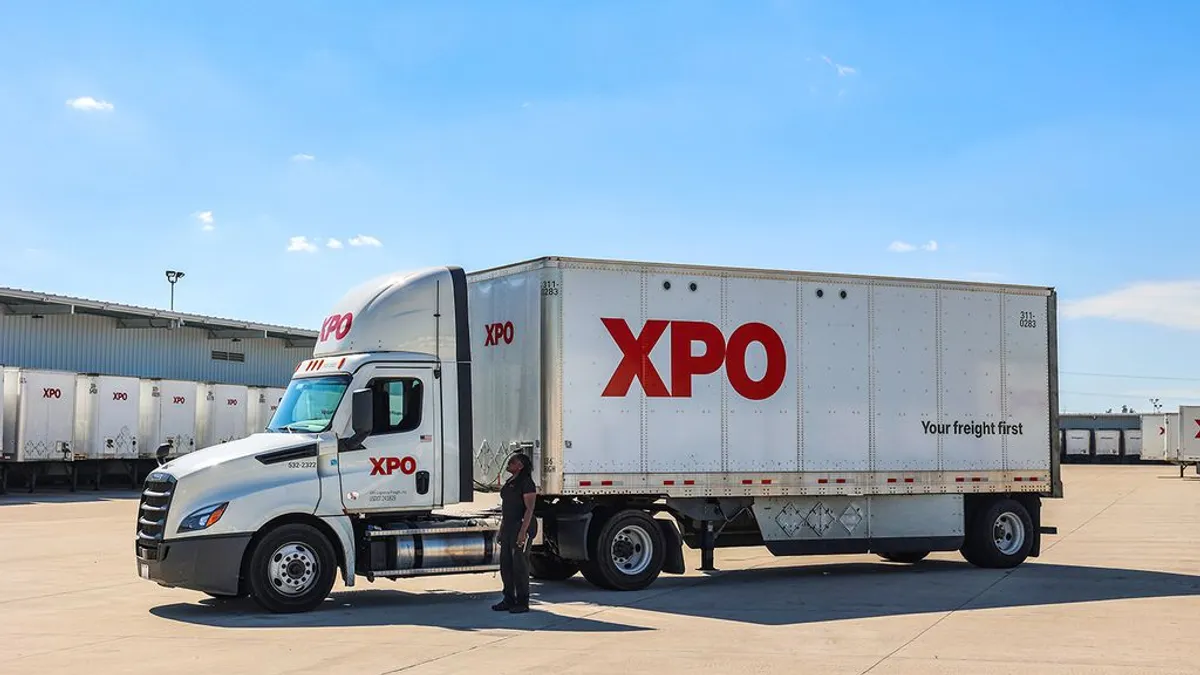Dive Brief:
- Saia is transitioning its customer service functions to local terminals in order to speed response time, the company told Trucking Dive in an email.
- The restructuring resulted in "workforce impacts" at its general offices in Johns Creek, Georgia, and Boise, Idaho, the company said.
- “We have invested in bringing customer service closer to the client by leveraging technology and allowing customers to call their local terminal directly for faster response times that will deliver an improved customer experience,” Saia said.
Dive Insight:
Saia said the changes were made to "better align with the evolving needs of the business and customer expectations."
Satish Jindel, president of SJ Consulting Group, explained that rationale in an interview, noting having shippers call a central office for status updates, only for the central office to call the local terminal, just adds an "extra cog in the wheel."
“Now the reason why some companies have it centralized is their customer service people, if that's all they do, can be more productive," Jindel said."Because if you position [customer service representatives] in the local facilities, they may not have enough to do."
For example, a company that relies on union labor can have very tightly defined job roles, which makes it difficult to rotate tasks.
“If you're a driver, you come back from delivering shipment in six hours instead of eight hours, you can't be asked to work on the dock for those two hours,” he said.
Response time also matters to shippers, as having a local carrier presence helps even when their needs aren’t being met, according to Arash Azadegan, a supply chain professor at Rutgers University.
“Me being the carrier, you being a shipper, at least you have a face, an eyeball, and some empathy associated with that. And so you're going to give me a break merely by physical presence that might not be available otherwise,” Azadegan told Trucking Dive in an interview.
With recent tariff back and forth, shippers need responsiveness from carriers even more right now.
“Imagine if you have a ship that is not docked, right, and the tariffs are going to be put in place as of 48 hours from now,” Azadegan said as an example. “Suddenly, there's going to be a need for responsiveness by the carriers to do something to get that particular ship or that particular container, right, from a particular customer docket a lot faster than the other one.”
Saia did not disclose the number of workers that would be affected by the restructured operations but said information regarding human resources is being handled on an individual basis.
“We remain focused on delivering reliable, responsive service to our customers and will continue to assess opportunities to improve,” Fritz Holzgrefe, president and CEO of Saia, said in an email.













